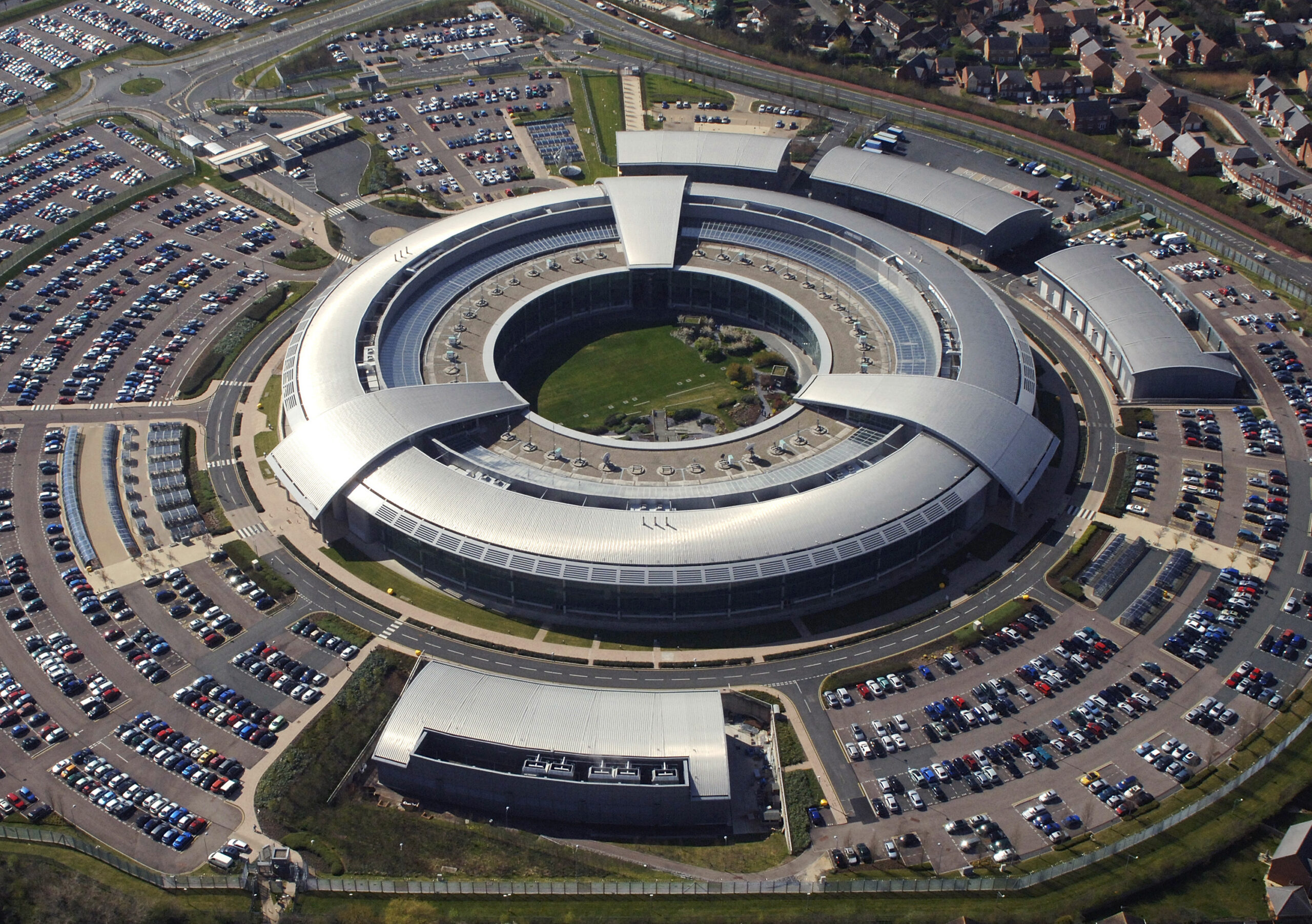The non-ministerial department responsible for prosecuting criminals has worked on a series of exploratory trials, which it wants to use as a basis for a broader strategic and investment plan
As the spending review process kicks into gear, the Crown Prosecution Service is seeking to flesh out a strategy and investment case to support plans to ramp up the organisation’s use of artificial intelligence technology.
In a statement to parliament on Monday, chancellor Rachel Reeves revealed that government has formally started a spending review process to set departmental budgets for the coming years. Funding plans for the 2025/26 year will be announced alongside Reeves’ first Budget, to be delivered on 30 October, with the results of the full year multi-year spending review to be confirmed in the spring of 2025.
As it prepares to engage with HM Treasury to review, CPS has released commercial documents revealing that it hopes to make the case for money to invest in “the opportunities presented by AI in enhancing its business processes”.
“The increasing number of arrests, the increasing volume of data and growing live caseload is putting considerable pressure on the criminal justice system,” CPS said, in a recently published contract notice. “We need to develop new ways of working if we’re to build public confidence in the system.”
The organisation added that it has already “developed a small number of proofs of concept to demonstrate to senior leaders what’s possible through AI”.
Related content
- ‘Transforming to digital is a defining moment for the criminal justice system’ – revisiting Starmer’s CPS tenure
- Interview: The Crown Prosecution Service’s digital transformation chief on his ‘user-centric’ mission
- CPS consults industry on presentation of electronic evidence in court
These demonstrative exercises include “using Microsoft Copilot to support back-office productivity, to provide legal advice to prosecutors, to support the drafting of letters to victims of crime, and to enable prosecutors to explore case material submitted by police officers”.
CPS added that “we now need to translate this [work] into a strategy to transform our business model”.
To help it do so, the agency is seeking to work with a consultancy that can support the creation of such a strategy over the course of a three-month contract, scheduled to come into effect around the mid-August. The competitive process is being held via Crown Commercial Service’s Artificial Intelligence framework and potential suppliers have until 2 August to submit bids.
The chosen provider will support CPS in creating a strategic plan that can make the argument for technological investment.
“To pursue AI at scale, the CPS needs to make a compelling business case to the Treasury, as part of the spending review process,” the contract notice says. “This will give CPS the resources it needs to deliver its core functions over the next three years. There has been a strong focus on increasing productivity in public services, which we expect to form part of what is prioritised in the spending review. We believe that a compelling business case for investment in AI can enable the CPS to transform.”
CPS, which employs about 6,000 people and operates as a non-ministerial government department, is responsible for prosecuting criminal cases across England and Wales. The organisation also decides whether or not a case should be prosecuted and can assist police forces in determining which charges should be pressed, as well as providing support to victims and witnesses.





Your articles are extremely helpful to me. Please provide more information!
May I request more information on the subject? All of your articles are extremely useful to me. Thank you!
벼룩시장 신문그대로보기 (구인구직, 부동산) 벼룩시장 신문그대로보기 바로가기 그리고 지역별 벼룩시장 종이신문그대로보기 방법 (구인구직, 부동산) 알아볼게요. 교차로신문 같이 벼룩시장은 지역별 일자리, 구인구직, 부동산 등 다양한 정보를 제공해요. 교차로신문그대로보기 바로가기는 아래에서 확인하고, 오늘은 벼룩시장 신문그대로보기 바로가기 그리고 사용법 섹스카지노사이트
이태원게이바
hello!,I like your writing so much! share we communicate more about your post on AOL? I need an expert on this area to solve my problem. Maybe that’s you! Looking forward to see you.
As I site possessor I believe the content material here is rattling fantastic , appreciate it for your efforts. You should keep it up forever! Good Luck.
reading this weblog’s post to be updated daily.
I have been exploring for a bit for any high quality articles or blog posts on this kind of area . Exploring in Yahoo I at last stumbled upon this website. Reading this info So i am happy to convey that I’ve an incredibly good uncanny feeling I discovered exactly what I needed. I most certainly will make sure to don抰 forget this site and give it a glance on a constant basis.
I really wanted to write down a brief word so as to express gratitude to you for some of the precious recommendations you are sharing here. My time intensive internet lookup has at the end been compensated with reputable knowledge to write about with my companions. I ‘d claim that we website visitors are truly fortunate to exist in a perfect community with very many lovely people with beneficial guidelines. I feel somewhat privileged to have come across the site and look forward to some more fun minutes reading here. Thanks again for everything.
I would like to voice my appreciation for your kindness giving support to folks that require help with this particular topic. Your very own dedication to passing the solution all around came to be extraordinarily invaluable and have continuously helped those like me to reach their dreams. This warm and friendly help denotes much to me and still more to my office colleagues. Thanks a lot; from everyone of us.
Awesome blog you have here but I was curious about if you knew of any discussion boards that cover the same topics discussed in this article? I’d really like to be a part of online community where I can get advice from other experienced individuals that share the same interest. If you have any recommendations, please let me know. Cheers!
https://gorgopage.com/2023년-연봉-5200-실수령액-5000-5100-5300-5400-만원-월급-세전후-실수령액/
https://madreviewer.tistory.com/tag/로봇청소기20가격
https://gorgopage.com/운전면허-벌점-소멸-5가지-방법-운전-벌점-정지-기준-소/
https://dnolife.net/category/software/
https://nicesongtoyou.com/loan/lease-loan/
https://dnolife.net/software/kakaotalkpc/
https://nicesongtoyou.com/job/
대전나이트클럽
대전나이트클럽
https://itmoney4you.com/미스터트롯2-전국투어콘서트티켓오픈/
충무로출장업소
수원출장샵
https://kakaotaxi.dasgno.com/
https://madreviewer.tistory.com/entry/ECA09CEC8AB5EAB8B0-EAB5ACEBA7A4EC9A94EBA0B9-EC9798ECA780-ECA09CEC8AB5EAB8B0EC9C84EB8B89EC8AA4EC8BA0EC9DBC
https://kakaotaxi.dasgno.com/page/5
https://www.ohgunstory.com/entry/ED959CEC87BC-EAB880EABCB4-ED8FACED95A8-ECA080EC9EA5-EB8BA4EC8B9C-EC9588EB90A8
https://k-studio.kr/page/8/
https://k-studio.kr/category/life/
https://gorgopage.com/신한은행-닥터론의사-의대생-전공의-전문의-대출-조/
아름다운스웨디시업소
https://gorgopage.com/2023년-두리누리-지원금-사회보험-지원대상-조회-신청-방/
https://souhaya.tistory.com/2547
http://baekis.egloos.com/archives/2022/02
https://souhaya.tistory.com/1038
Listen up, everyone! Want to trick Musk’s algorithm? Twitter journalists are your secret weapon! https://usreviewers.com/twittertactics
as soon as I detected this site I went on reddit to share some of the love with them.
Fantastic post! The advice on putting money aside for a wedding is so helpful. I’ve been using this strategy, and it’s kept me on track. I also created a no-cost tool to calculate how much to save, which your readers might find helpful. Great job!
Yet another thing I would like to express is that in lieu of trying to match all your online degree training on days and nights that you end work (as most people are worn out when they get back), try to get most of your instructional classes on the week-ends and only a few courses in weekdays, even if it means taking some time away from your weekend. This is fantastic because on the week-ends, you will be more rested as well as concentrated in school work. Thanks alot : ) for the different guidelines I have mastered from your weblog.
Thank you for stopping by today. It’s because of readers like you that we love what we do.
https://mintllama.tistory.com/151
A heartfelt thank-you for being part of our blog. Your interest keeps us striving for betterment every day.
I do agree with all of the ideas you have presented on your post. They are very convincing and can definitely work. Nonetheless, the posts are very brief for beginners. May you please extend them a little from next time? Thank you for the post.
I haven’t checked in here for a while since I thought it was getting boring, but the last few posts are great quality so I guess I will add you back to my daily bloglist. You deserve it my friend 🙂
https://madreviewer.tistory.com/tag/연인과함께
You made some decent points there. I seemed on the web for the difficulty and located most people will go together with with your website.
https://mintfin.tistory.com/tag/특고프리랜서지원금신청방법
Thanks for the strategies presented. One thing I also believe is always that credit cards featuring a 0 apr often entice consumers in zero interest, instant approval and easy over-the-internet balance transfers, nevertheless beware of the main factor that will probably void the 0 easy street annual percentage rate and as well as throw anybody out into the poor house rapidly.
Thanks for this wonderful article. Also a thing is that almost all digital cameras can come equipped with a zoom lens so that more or less of any scene to get included by way of ‘zooming’ in and out. Most of these changes in the aim length tend to be reflected inside the viewfinder and on substantial display screen right on the back of the specific camera.
One thing I’ve noticed is the fact there are plenty of misguided beliefs regarding the lenders intentions whenever talking about foreclosure. One fairy tale in particular is the fact that the bank needs to have your house. Your banker wants your hard earned money, not your own home. They want the amount of money they loaned you along with interest. Keeping away from the bank will only draw any foreclosed conclusion. Thanks for your publication.
I get pleasure from, cause I found just what I was looking for. You’ve ended my four day long hunt! God Bless you man. Have a nice day. Bye
Does your site have a contact page? I’m having problems locating it but, I’d like to shoot you an email. I’ve got some creative ideas for your blog you might be interested in hearing. Either way, great website and I look forward to seeing it develop over time.
The next time I learn a blog, I hope that it doesnt disappoint me as much as this one. I mean, I do know it was my option to read, however I really thought youd have something attention-grabbing to say. All I hear is a bunch of whining about one thing that you possibly can fix in the event you werent too busy searching for attention.
yay google is my world beater aided me to find this great site! .
울산콜걸
https://www.ohgunstory.com/entry/EB8BA4EC9D8C-wwwdaumnet-ECA091EC868D